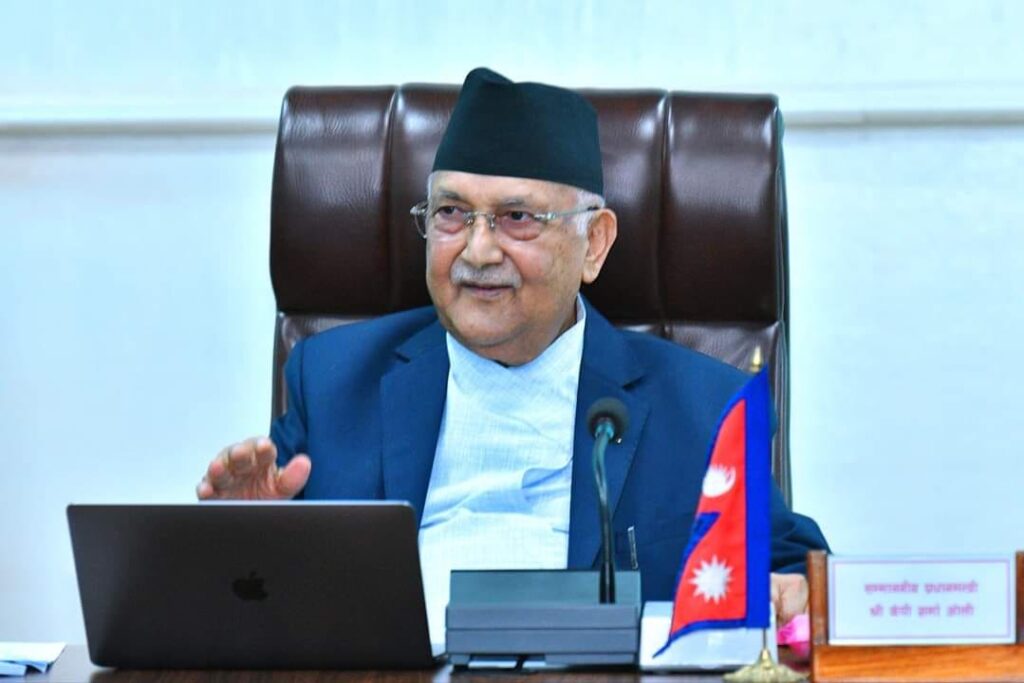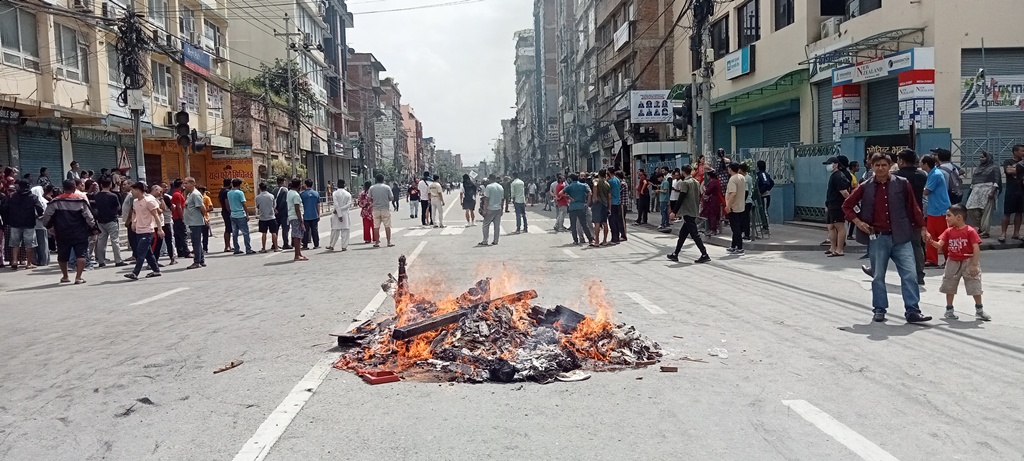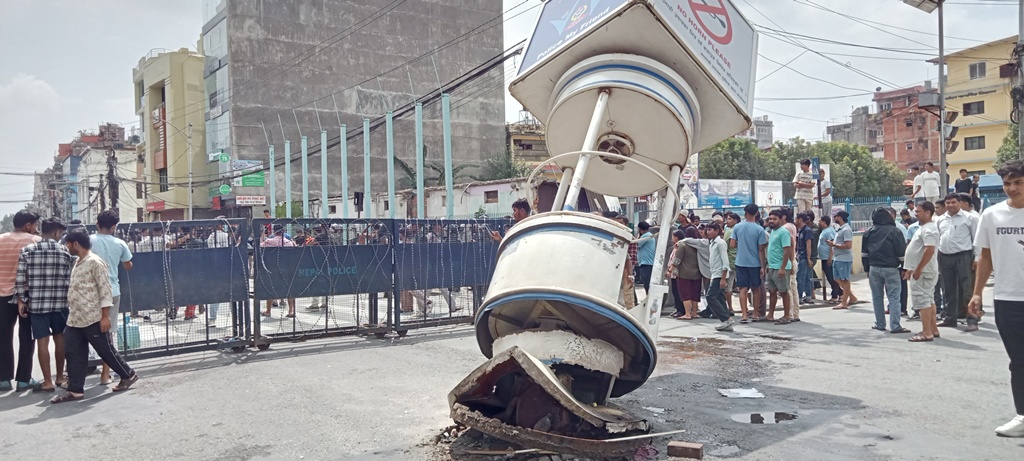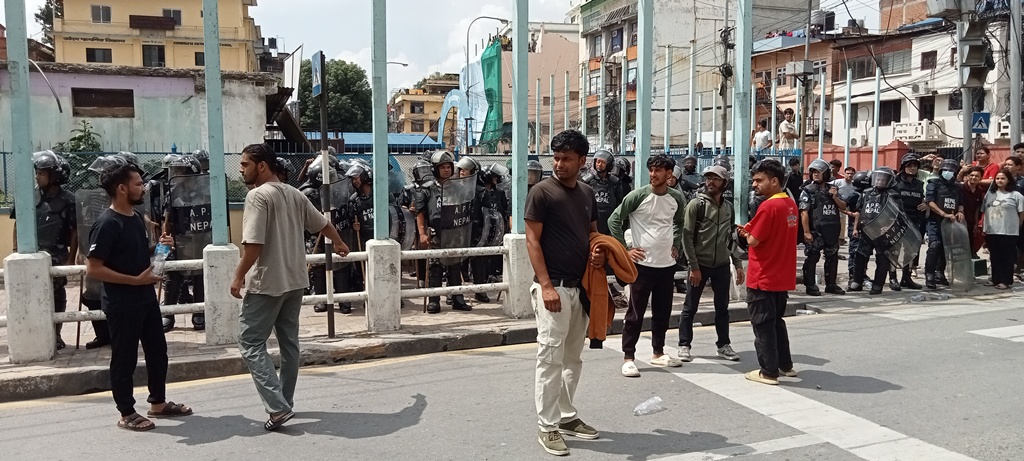Nepalese Prime Minister KP Sharma Oli resigned on Tuesday, September 9, in the face of massive anti-government protests rocking the country, officials said.

Oli stepped down shortly after hundreds of demonstrators entered his office shouting anti-government slogans.
Hours before his resignation, the demonstrators set on fire the Nepalese leader’s private residence in Balkot demanding accountability for Monday’s fatalities.
At least 19 people were killed during the violent protests on Monday against the government’s ban on social media sites.
Following the protests, the government revoked the ban last night.

Earlier in the day, the violent student-led anti-government protests continued in Nepal for the second day, defying curbs on public gatherings, as demonstrators demanded the resignation of Prime Minister K P Sharma Oli and vandalised residences of several political leaders.
The protesters, under the banner of Gen Z, shouted slogans such as “KP Chor, Desh Chhod” (KP thief, leave the country) and “Take Action Against Corrupt Leaders” in multiple parts of the capital.
The agitators torched the residence of Prime Minister Oli at Balkot in Bhaktapur. Oli is currently at the Prime Minister’s residence at Balwatar.
Protesters also torched the residence of former home minister Ramesh Lekhak at Naikap in Kathmandu, just a day after he resigned from his post following the police’s use of force on youths protesting the government ban on social media sites left 19 people dead and over 300 others injured on Monday.
Demonstrations were reported from Kalanki, Kalimati, Tahachal, and Baneshwor in Kathmandu, as well as Chyasal, Chapagau, and Thecho areas of Lalitpur district. Protesters, mostly students, chanted slogans such as “Don’t kill students”, defying the restrictions on public gatherings.
In Kalanki, demonstrators burnt tyres to block roads from the early hours of the morning, according to eyewitness accounts.

According to media reports, four people were injured as police opened fire at the demonstrators.
The agitating youths also pelted stones at the residence of Communication Minister Prithvi Subba Gurung in Sunakothi at Lalitpur district, eye witnesses said. Gurung had ordered a ban on the social media sites.
The protesters vandalised the residence of former prime minister Pushpa Kamal Dahal ‘Prachanda’ at Khumaltar in Lalitpur.
They also vandalised former PM Sher Bahadur Deuba’s house at Budhanilkantha in Kathmandu.
The Gen Z group, which has been campaigning against corruption for some time, has used social media platforms like Reddit and Instagram to expose the extravagant lifestyles of the children of ministers and other influential figures. They have posted videos and images, questioning the sources of wealth that fund such opulence, purportedly derived from corrupt practices.
The ban of social media sites, it said, was an attempt to suppress freedom of speech.
The Nepalese government had ordered the ban of 26 social media sites, including Facebook and ‘X’, over their failure to register with the government.

However, in a late-night development on Monday, the government announced the restoration of access to social media platforms, in an apparent bid to ease public anger.
The protesters main demands include the resignation of Prime Minister Oli, the formation of a national government, and strict action against corrupt politicians.
Numerous posts on social media have called for Oli’s resignation and the establishment of a new government.
Among their other demands are guaranteed freedom of expression, and the introduction of a retirement age for those holding political office, according to Gen Z activists.
Meanwhile, Nepali Congress general secretary Gagan Thapa had also called for the immediate resignation of PM Oli.
“PM Oli should immediately resign, taking responsibility for the situation,” he wrote on social media.
Senior Nepali Congress leaders Bimalendra Nidhi and Arjun Narsingh Kesi had suggested that the party withdraw all its ministers from the Oli-led government, form a government, and initiate dialogue with the agitating Gen Z group.
Talking to PTI, Nidhi said as the largest party in Parliament, Nepali Congress must safeguard democracy and the Constitution during these critical times.
“Nepali Congress should withdraw support to the Oli-led government and initiate the process of forming a national government,” he said.
Kesi also said that Nepali Congress should withdraw from the government and initiate the process of forming an all-party government.

He also demanded the creation of a powerful anti-corruption body to investigate the assets of those in power and take decisive action, alongside initiating dialogue with the Gen Z group.
Meanwhile, two Nepali Congress ministers resigned from the government. Agriculture Minister Ramnath Adhikari and Health and Population Minister Pradip Poudel stepped down, citing the government’s harsh response to student protests on Monday.
However, some ministers remain in the current government.
Nineteen youths, including a 12-year-old student, were killed and more than 300 were injured on Monday as police resorted to firing, baton charges, and tear gas to disperse demonstrators opposing widespread corruption and the social media ban.


